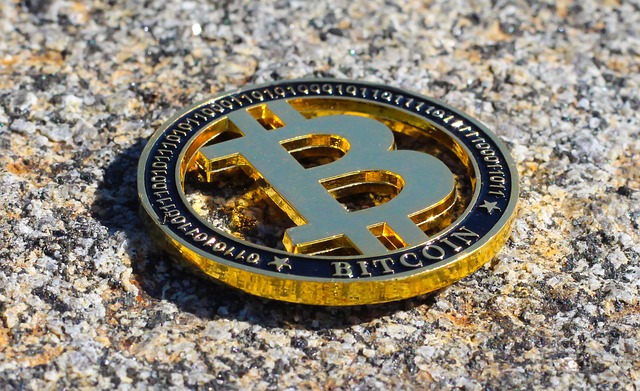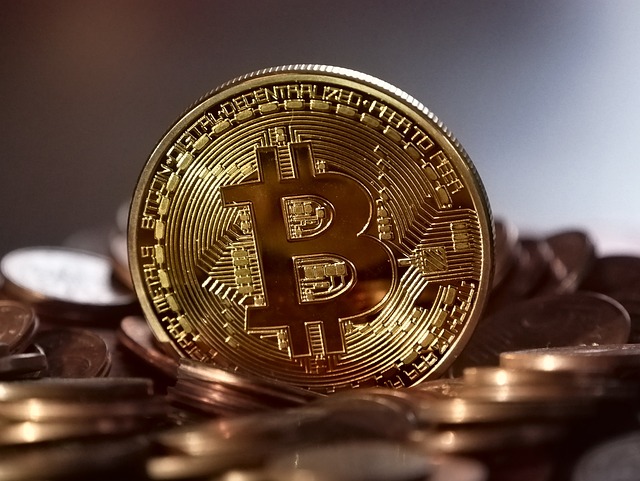DeFi Projects Decoded: Navigating the Crypto Landscape
DeFi Projects Decoded: Navigating the Crypto Landscape

What is DeFi and why is it important in the cryptocurrency world?
Decentralized Finance, or DeFi, refers to a new and innovative system of financial tools and applications that operate on blockchain technology. Unlike traditional centralized financial institutions, DeFi projects aim to provide an open and accessible financial ecosystem to anyone with an internet connection. This is achieved by eliminating intermediaries and enabling peer-to-peer transactions, making it easier and more efficient to lend, borrow, trade, and invest in cryptocurrencies.
The importance of DeFi in the cryptocurrency world cannot be overstated. By leveraging the power of blockchain technology, DeFi projects offer solutions to many of the limitations and inefficiencies of traditional finance. They provide greater financial autonomy and control to individuals, bypassing the need for banks or other intermediaries. Additionally, DeFi opens up opportunities for people in areas with limited access to traditional banking services to participate in global financial markets. As a result, DeFi has the potential to democratize finance and revolutionize the way we transact and interact with money.
Understanding the different types of DeFi projects and how they function.
DeFi, short for Decentralized Finance, is an emerging trend in the cryptocurrency world that aims to revolutionize traditional financial systems by eliminating intermediaries. There are various types of DeFi projects, each designed to address different aspects of the financial ecosystem. One of the most common types is decentralized lending platforms, which enable individuals to lend or borrow digital assets directly from other users, without the need for a traditional financial institution. These platforms leverage smart contracts to ensure secure and transparent transactions while allowing borrowers to use their collateral to receive loans instantly.
Another type of DeFi project is decentralized exchanges (DEXs), which facilitate peer-to-peer trading of digital assets without the involvement of centralized entities. Unlike traditional exchanges, DEXs enable users to maintain control over their funds and perform trades directly from their personal wallets. This not only enhances user privacy but also eliminates the risk of funds being held by a central authority. DEXs utilize automated market-making algorithms to provide liquidity and determine asset prices, making them an important catalyst for DeFi’s growth. Overall, the different types of DeFi projects offer unique functionalities that contribute to the creation of a more decentralized and inclusive financial system.
Exploring the potential risks and rewards of investing in DeFi projects.
Investing in DeFi projects can offer substantial rewards, but it is important to acknowledge the potential risks involved. One of the main risks of investing in DeFi is the volatility of the cryptocurrency market. Prices can fluctuate rapidly, and even the most promising projects can experience significant price swings. Additionally, the lack of regulatory oversight in the DeFi space can make it a breeding ground for scams and fraudulent activities. Investors need to exercise caution and conduct thorough research before committing their funds to any project.
Despite the risks, there are also potential rewards to be gained from investing in DeFi projects. One of the main advantages is the potential for high returns. Many DeFi projects offer attractive interest rates, allowing investors to earn passive income from their investments. Furthermore, the decentralized nature of the DeFi ecosystem provides users with increased control and ownership over their assets, eliminating the need for intermediaries and offering a greater level of financial autonomy. Overall, investing in DeFi projects can offer both financial opportunities and the chance to participate in shaping the future of the financial industry.
Tips for conducting thorough research before investing in a DeFi project.
Conducting thorough research before investing in a DeFi project is crucial for protecting your hard-earned money and maximizing your chances of success. With the decentralized nature of the cryptocurrency world, it’s essential to gather as much information as possible before committing your funds. First and foremost, take the time to understand the project’s fundamentals. This includes studying the team behind the project, analyzing their experience in the industry, and assessing the project’s underlying technology. By delving into these aspects, you can gain insights into the project’s potential for success and its ability to deliver on its promises.
In addition to understanding the project itself, it’s important to evaluate the wider DeFi ecosystem. Pay attention to the market trends and emerging technologies that are shaping the landscape. Be aware of the risks associated with DeFi investments, such as smart contract vulnerabilities and regulatory uncertainties. Keep up with the latest news and developments in the industry to stay informed about any potential risks or opportunities that may arise. Overall, thorough research involves being diligent, staying informed, and critically analyzing the different factors that can impact the success of a DeFi project. By doing so, you can make more informed investment decisions and increase your chances of achieving your financial goals.
Common challenges faced by investors when navigating the crypto landscape.
Investing in the cryptocurrency landscape can be an exhilarating yet challenging experience for many investors. One common challenge faced by investors when navigating this space is the volatility of cryptocurrencies. Unlike traditional financial markets, cryptocurrencies are known for their price fluctuations, which can be unpredictable and rapid.

Another challenge faced by investors in the crypto landscape is the lack of regulation and oversight. Cryptocurrencies and decentralized finance (DeFi) projects operate in a relatively new and unregulated space, which means that there is a higher risk of scams, fraud, and market manipulation. Investors must exercise caution and conduct thorough research before committing their funds to any project. The decentralized nature of cryptocurrencies also means that there is no central authority or mechanism to protect investors in the event of fraud or theft, making it crucial for investors to take personal responsibility for the security of their assets.
• Volatility of cryptocurrencies: Cryptocurrencies are known for their unpredictable and rapid price fluctuations, making it challenging for investors to accurately gauge the value and potential returns of their investments. It requires a high level of risk tolerance and a long-term perspective.
• Lack of regulation and oversight: The crypto landscape operates in a relatively new and unregulated space, which increases the risk of scams, fraud, and market manipulation. Investors must exercise caution and conduct thorough research before committing funds to any project.
• Higher risk of scams and fraud: Due to the lack of regulation, there is an increased risk of scams and fraudulent activities in the crypto landscape. Investors need to be vigilant in identifying legitimate projects from fraudulent ones.
• Personal responsibility for asset security: With no central authority or mechanism to protect investors, it becomes crucial for investors to take personal responsibility for the security of their assets. This includes implementing strong security measures such as using hardware wallets or secure exchanges.
• Lack of understanding about blockchain technology: Many investors may not fully understand how blockchain technology works or its implications on various industries. This lack of understanding can make it difficult for them to assess the potential value or risks associated with different cryptocurrency projects.
• Market saturation with numerous cryptocurrencies: The crypto landscape is saturated with thousands of different cryptocurrencies, each claiming unique features or benefits.

Overall, investing in the cryptocurrency landscape comes with its own set challenges that require careful consideration, research, risk management strategies, and staying updated with industry trends.
How to identify promising DeFi projects and avoid scams.
In the fast-paced world of Decentralized Finance (DeFi), it is crucial to be able to identify promising projects and avoid falling prey to scams. With the increasing popularity of DeFi, the number of projects claiming to offer lucrative opportunities has also surged. However, not all projects are created equal, and it is essential to be diligent when conducting research.
One of the first steps in identifying a promising DeFi project is to examine its team and their track record. Look for projects led by experienced professionals with a history of successful ventures in the crypto industry. Dig deeper and see if the team has a strong presence in the community, as this can provide valuable insights into their dedication and credibility. Additionally, analyzing the project’s whitepaper and roadmap can help gauge their vision and execution plan. Look out for transparent and detailed documents that outline the project’s goals, technology, and long-term plans. By carefully assessing the team and their project’s roadmap, you can increase the likelihood of identifying a promising DeFi opportunity.
The role of decentralized exchanges in the DeFi ecosystem.
Decentralized exchanges (DEXs) play a vital role in the ever-expanding world of decentralized finance (DeFi). Unlike traditional centralized exchanges that rely on intermediaries to facilitate transactions, DEXs operate on a peer-to-peer basis. This means that users have more control over their funds, as transactions occur directly between the buyer and seller. By removing the need for intermediaries, DEXs aim to enhance transparency and security within the DeFi ecosystem.
One of the key advantages of decentralized exchanges is their ability to provide users with greater financial autonomy. Unlike centralized exchanges that often require users to provide personal information and undergo lengthy verification processes, DEXs allow individuals to trade assets without the need for extensive identity verification. Additionally, DEXs generally offer a wider range of trading pairs and enable the trading of tokens that may not be available on centralized platforms. This open and inclusive nature of DEXs enables more participants to engage in the DeFi ecosystem, fostering innovation and driving increased liquidity within the space.
Exploring the concept of yield farming and its potential for high returns.
Yield farming has emerged as a popular concept in the decentralized finance (DeFi) space, garnering attention from investors seeking high returns. Essentially, yield farming involves providing liquidity to DeFi protocols in exchange for rewards, often in the form of additional tokens. This process allows investors to earn passive income through lending, borrowing, or staking their assets. The potential for lucrative returns in yield farming arises from the amplification of token value provided by these protocols. By incentivizing users to lock their funds into DeFi projects, the supply of tokens decreases, driving up their scarcity and, consequently, their value.
However, it is important to note that yield farming is not without its risks. The decentralized nature of DeFi means that projects can be susceptible to bugs, hacks, or smart contract vulnerabilities. Therefore, investors should exercise caution and conduct thorough research before participating in any yield farming opportunities. This involves analyzing the project’s tokenomics, understanding the risks associated with providing liquidity, and evaluating the security measures in place. Although yield farming can offer the potential for significant returns, it is crucial to strike a balance between the allure of high profits and the need to invest sensibly and responsibly.
Understanding the impact of regulatory measures on DeFi projects.
As the popularity of decentralized finance (DeFi) projects continues to grow, regulatory attention is also intensifying. Governments and financial authorities around the world are grappling with how to best address this innovative space, which operates outside of traditional financial systems. Some jurisdictions are embracing DeFi, while others are imposing stricter regulations.
The impact of regulatory measures on DeFi projects can be significant. On one hand, regulations can provide legitimacy and investor protection, which can help boost confidence in the industry. Regulatory frameworks may include requirements for licensing, know-your-customer (KYC) procedures, and anti-money laundering (AML) measures. These measures aim to prevent fraudulent activities and ensure compliance with existing financial laws. However, overly burdensome regulations may stifle innovation and hinder the growth of the DeFi ecosystem. Striking the right balance between regulation and innovation is essential for sustainable development in this space.
Strategies for managing risk and diversifying your DeFi portfolio.
When it comes to managing risk and diversifying your DeFi portfolio, there are a few key strategies that can help you navigate the volatile nature of the cryptocurrency market. First and foremost, it is always important to do your research before investing in any DeFi project. This means thoroughly evaluating the team behind the project, their track record, and the overall feasibility of their goals.

Another important strategy to manage risk is to stay updated on the latest news and market trends. The cryptocurrency market can be highly volatile, and staying informed can help you make informed decisions and spot potential risks or opportunities. Additionally, it is advisable to set clear investment goals and define your risk tolerance. Having a plan in place can help you avoid impulsive decisions and stay focused on your long-term investment objectives. Lastly, it’s essential to stay vigilant and be cautious of potential scams or fraudulent projects. Always double-check the security and credibility of the projects you are considering investing in, and be wary of promises of quick and guaranteed returns. By following these strategies, you can effectively manage risk and increase your chances of success in the world of DeFi.
What is DeFi and why is it important in the cryptocurrency world?
DeFi stands for Decentralized Finance, which refers to financial applications built on blockchain technology. It’s important because it enables individuals to have more control over their finances without relying on traditional intermediaries like banks.
Understanding the different types of DeFi projects and how they function.
DeFi projects can vary, but some common types include decentralized exchanges, lending platforms, and yield farming protocols. Each project operates differently but aims to provide financial services in a decentralized manner.
Exploring the potential risks and rewards of investing in DeFi projects.
Investing in DeFi projects can be rewarding due to their potential for high returns. However, it also comes with risks, such as smart contract vulnerabilities and market volatility. It’s crucial to understand these risks before investing.
Tips for conducting thorough research before investing in a DeFi project.
Before investing in a DeFi project, it’s important to research the team behind it, analyze its whitepaper, review the project’s community, and assess its transparency and security measures. This will help you make informed investment decisions.
Common challenges faced by investors when navigating the crypto landscape.
Some common challenges include understanding complex technical concepts, dealing with market volatility, and identifying trustworthy projects. It’s important to stay updated, seek advice, and take calculated risks in this ever-evolving landscape.
How to identify promising DeFi projects and avoid scams.
Look for projects with a strong development team, transparent documentation, a clear roadmap, and an active community. Additionally, be cautious of projects promising unrealistic returns or lacking transparency – these could be potential scams.
The role of decentralized exchanges in the DeFi ecosystem.
Decentralized exchanges (DEXs) allow users to trade cryptocurrencies directly with each other without relying on intermediaries. They play a crucial role in the DeFi ecosystem by providing liquidity and enabling secure peer-to-peer transactions.
Exploring the concept of yield farming and its potential for high returns.
Yield farming involves staking or lending crypto assets to earn rewards. It can be highly profitable due to the high annual percentage yields (APYs) offered by some protocols. However, it also carries risks, such as impermanent loss and smart contract vulnerabilities.
Understanding the impact of regulatory measures on DeFi projects.
As DeFi continues to gain popularity, regulatory measures may increase to ensure investor protection and combat illicit activities. While regulations bring some stability to the ecosystem, they can also impact certain DeFi functionalities, so staying updated is crucial.
Strategies for managing risk and diversifying your DeFi portfolio.
To manage risk, consider diversifying your DeFi investments across different projects, asset types, and risk levels. Set clear investment goals, stay informed about market trends, and be prepared to adjust your portfolio accordingly. Additionally, consider using risk management tools and strategies like stop-loss orders and portfolio rebalancing.
Todays Featured Product:
Buy, exchange and grow your crypto securely with a Ledger hardware wallet, combined with the Ledger Live app. It’s never been easier to keep your crypto safe and accessible. Buy direct from Ledger.com and get todays Special Offers Here.




